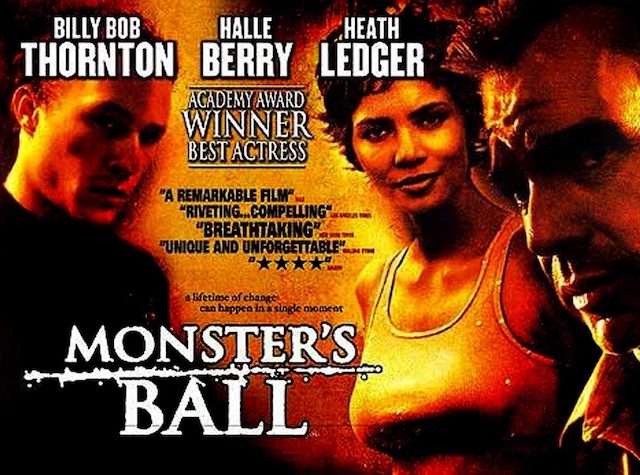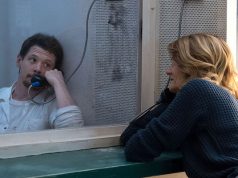
I started writing this column because I was fascinated by the phenomenon of stumbling across a glowing review I’d written of a movie that I no longer remembered very well. It makes sense that some movies, even ones you think are terrific, are going to fade away as time passes — especially if you don’t re-watch them, and especially if your brain is constantly being filled with other movies. It’s just weird to realize that you’re on the record as having once been passionate about something that now barely registers.
As I’ve re-watched these movies for Re-Views, one of the pleasures has been the way they trigger my memory. Sometimes it’s tiny things that feel familiar, like a camera angle or a line of dialogue. Sometimes I’ll recall details about the screening itself — which theater it was, who I saw it with, a particularly witty remark that a fellow critic made afterward. Even when I’m re-watching something I hated the first time, it’s fun to take a trip down memory lane. It helps that I still have most of my notebooks, so I can read what I scribbled down at the time (or at least squint at it and try to read it).
But then we come to “Monster’s Ball.” I wrote an effusive and, if I may say so, rather eloquent review of it. I spoke of its beauty, its powerful acting, and its complexity.
And I do not remember a single thing about it.
I don’t have any memories of watching it. (Was it in a theater? On a screener at home? Alone? With friends?) I can’t find it in my notebooks from that period. I can recall the basic premise — corrections officer; lady whose husband got executed; steamy sex — but no details. None. Apparently I found it very moving and poignant at the time! And yet the only evidence I have that I even saw it is the fact that I wrote a review.
What I said then:
“‘Monster’s Ball’ is about very different strangers brought together by fate, though that time-worn plot device doesn’t begin to do justice to the complexity of this emotionally rich film. In fact, none of what the film is “about” can adequately be explained just by describing it…. Through Marc Forster’s slow, dreamily paced direction, Milo Addica and Will Rokos’ clear, simple script and — especially — Oscar-caliber acting from Billy Bob Thornton and Halle Berry, this film made of old parts seems as fresh and alive as if every one of its ideas were brand-new…. This is by and large a quiet movie, with very little musical underscoring and not a bit of flashiness. Forster is confident enough in his script and actors, as well he should be, and is content to let them shine…. When I think of the melodrama that could have resulted, and ponder how this film turned it into something beautiful and life-affirming instead, it makes me hopeful about the intelligence and depth motion pictures can convey.” Grade: A- [complete review]
The re-viewing:
I wrote the above paragraphs before my re-viewing of “Monster’s Ball,” which took place a few days ago. I assumed that watching it would bring back some memories. It did not. When a character died suddenly and shockingly, I didn’t think, “Oh, yeah, I remember being shocked by that before!” Until that moment, I didn’t even remember that the character was going to die. When another character became injured, I tried to recall whether he or she was going to survive. I couldn’t. And I still can’t remember any details about the circumstances under which I watched it the first time, ten years ago. The second viewing didn’t trigger anything.
Like I said, it’s not perplexing that I would forget a movie. That’s gonna happen. What’s strange is forgetting a movie that inspired such powerful emotions. Reading my old review now, I recognize that it describes a film that genuinely touched me. Yet I no longer have those feelings. It might as well have been written by someone else. THIS IS WEIRD!
I’m glad that I didn’t read the review before I re-watched the movie (I only looked at the grade), as this allowed me to compare my thoughts on it now with my thoughts on it then without worrying that 2001 me had influenced 2011 me. This time, I jotted in my notes that it was “languid, slow but steady” — very close to what I wrote then: “slow, dreamily paced.” It’s like when twins who are separated at birth meet later and find they have many things in common!
(Something else I jotted: “Heath bones a whore for 30 seconds.” Just FYI.)
But most of my 2001 review still felt foreign. I wrote then: “It’s about racism, yes, and breaking off from poisonous family traditions, and the death penalty, and a thousand other things.” It would not have occurred to me, after the second viewing, to write that the movie is “about” the death penalty. That’s part of the plot, obviously, but I don’t feel like the movie is making any particular statement about beyond the basic “executing a man is a serious thing.” It doesn’t strike me as integral enough to the movie’s themes to mention it in the review. Likewise, I described Sonny as being “as profoundly unhappy as any film character you’ll see,” and I said the movie “becomes the story of how two such coarse, flawed people can refine one another into something workable.” Neither of those assessments would have made it to the page if I were reviewing the movie now.
And here’s what fascinates me the most. (By the way, I’m aware that everything I’ve written here is probably more fascinating to me than anyone else. Please indulge me just this once.) It isn’t that my opinion of “Monster’s Ball” has changed after a second viewing ten years later. I don’t particularly disagree with anything I wrote back then; it’s just not what I would have chosen to emphasize now. I still like the movie — but I like it for different reasons.
Here’s where I circle back to something with universal application. Our reaction to a movie is always going to be influenced by factors beyond the movie itself: where we are in our lives, what we’ve experienced, what other entertainment we’ve consumed that addressed similar ideas, and so on. That’s the nature of art: it’s supposed to connect with us somehow. When you see a movie as a 40-year-old, you’re bound to respond to it differently than when you were 20. Even if you still have the same overall opinion, it’s likely that certain elements will jump out more than they did before, simply because of how much you have changed in the interim. Watching a film a second time with all memory of the first time wiped away, then comparing my reactions, allowed me to see this phenomenon in stark relief. So I guess I’m glad for the weird, unexplained memory loss, kind of.
Do I still love this movie?
I like it very much, though it didn’t pack as great an emotional wallop as it (evidently) did back then. Halle Berry won an Oscar for her performance, and while her reputation has dimmed since then (“Catwoman” will do that to a person), I can see why she got it. She and Billy Bob Thornton are both excellent, actually, delivering raw and unflinching portrayals of people who are deeply flawed. It doesn’t just take acting skill to do that effectively — it takes courage to do it without pulling any punches. Forster overplays some of the parallels between the characters, leans a little too hard on the symbolism here and there, but in general his touch is confident and careful, the work of a filmmaker who knows how to convey the deeply felt emotions of the story. Grade: B+
— Film.com




